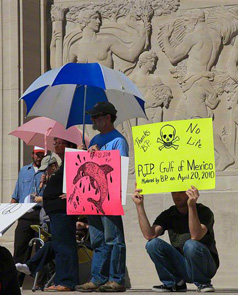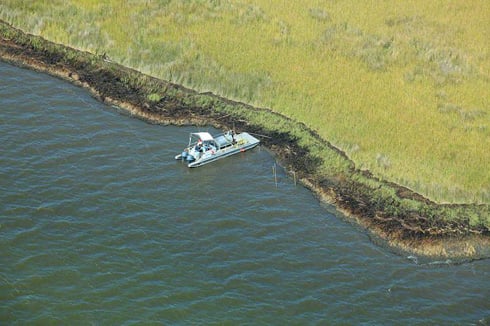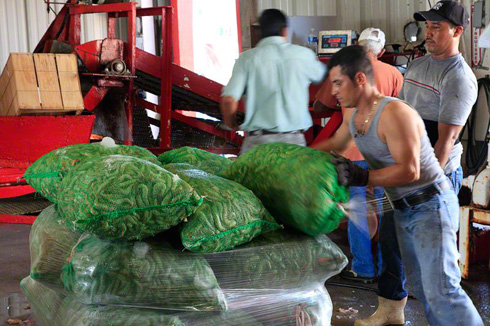"We're Poisoned. We're Sick."
Tuesday 15 February 2011
by: Dahr Jamail and Erika Blumenfeld, t r u t h o u t | Report

Gulf Coast residents protesting the lack of adequate response from BP or the government to health and environmental risks. (Photo: Erika Blumenfeld)
Residents who live along the coast of the Gulf of Mexico, all the way from Terrebonne Parish, Louisiana, to well into western Florida, continue to tell me of acute symptoms they attribute to ongoing exposure to toxic chemicals being released from BP's crude oil and the toxic Corexit dispersants used to sink it.
Shirley Tillman from Pass Christian, Mississippi, and former BP Vessels of Opportunity oil cleanup worker wrote me recently:
"You can't even go to the store without seeing sick people! You can hear them talking to people and they think they have the flu or a virus. I saw a girl that works at a local store yesterday that had to leave work because she was so sick! Others, throughout the entire store were hacking & coughing. It's crazy that this has been allowed to happen to all of us!"
Oil continues to wash ashore. That which was already there, usually in the form of tar balls or mats of tar, is being uncovered by the weather.

Vessels of Opportunity crew suctioning BP's crude oil off the oil-soaked marshlands. (Photo: Erika Blumenfeld)
Four of the fragile barrier islands of Mississippi have had four million pounds of oil removed, thus far. The embattled coastline never gets a break. However, BP cleanup crews, who returned to work the first week of January after an 11-day break, removed another 11,000 pounds of oil from Petit Bois Island Thursday, January 6, and another 3,800 pounds from Horn Island.
"The northerly wind seems to do the uncovering [of the oil]," a cleanup supervisor said. "Southerly winds appear to be covering it up."
"This is the biggest cover-up in the history of America," Plaquemines Parish President Billy Nungesser told reporters on a boat trip he took with Coast Guard and National Oceanic and Atmospheric Administration (NOAA) officials last week.
Nungesser was enraged by finding vast areas of Louisiana marsh soiled with oil, while no protective boom or cleanup workers were within sight.
"It's like you're in bed with BP," Nungesser fumed at the officials. "You cover up for BP."
As BP's stock price continues to improve, the Coast Guard, NOAA, the Food and Drug Administration (FDA) and the Environmental Protection Agency all continue to go to great lengths to convince the public, particularly those living along the Coast, that the air, water and seafood are perfectly safe.

Seafood continues to be fished from the Gulf of Mexico. (Photo: Erika Blumenfeld)
SEE MORE AT THE FOLLOWING LINK:
No comments:
Post a Comment